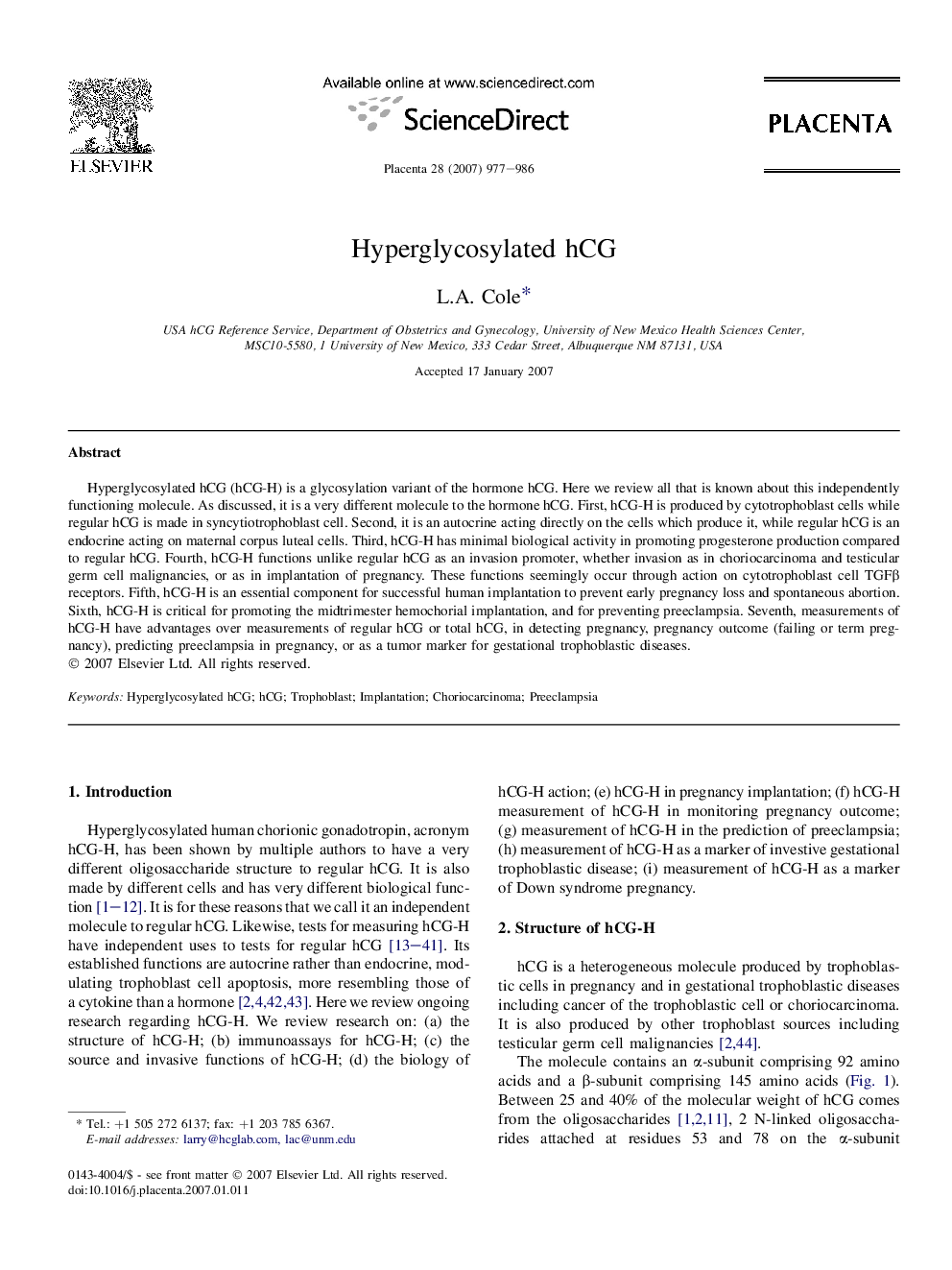| Article ID | Journal | Published Year | Pages | File Type |
|---|---|---|---|---|
| 2789700 | Placenta | 2007 | 10 Pages |
Hyperglycosylated hCG (hCG-H) is a glycosylation variant of the hormone hCG. Here we review all that is known about this independently functioning molecule. As discussed, it is a very different molecule to the hormone hCG. First, hCG-H is produced by cytotrophoblast cells while regular hCG is made in syncytiotrophoblast cell. Second, it is an autocrine acting directly on the cells which produce it, while regular hCG is an endocrine acting on maternal corpus luteal cells. Third, hCG-H has minimal biological activity in promoting progesterone production compared to regular hCG. Fourth, hCG-H functions unlike regular hCG as an invasion promoter, whether invasion as in choriocarcinoma and testicular germ cell malignancies, or as in implantation of pregnancy. These functions seemingly occur through action on cytotrophoblast cell TGFβ receptors. Fifth, hCG-H is an essential component for successful human implantation to prevent early pregnancy loss and spontaneous abortion. Sixth, hCG-H is critical for promoting the midtrimester hemochorial implantation, and for preventing preeclampsia. Seventh, measurements of hCG-H have advantages over measurements of regular hCG or total hCG, in detecting pregnancy, pregnancy outcome (failing or term pregnancy), predicting preeclampsia in pregnancy, or as a tumor marker for gestational trophoblastic diseases.
